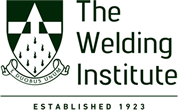Support for Universities |
|
The Welding Institute can work with universities to accredit engineering programmes against the Engineering Council standard called Accreditation of Higher Education Programmes (AHEP). Gaining accreditation for your engineering programmes means that the course design, content, assessment and resources have been recognised by an independent body as meeting the high standards set by the engineering profession. This demonstrates your institutions commitment to the development of professionally competent engineers. As a result, graduates from an accredited engineering degree programme will have achieved part or all of the underpinning knowledge for later professional registration as an Incorporated Engineer (IEng) or Chartered Engineer (CEng). Engineering employers and academics are involved in setting the standards, reviewing programmes and deciding whether to award accreditation. The Quality Assurance Agency’s (QAA) have also adopted the engineering profession’s standards in AHEP as its Engineering Subject Benchmark Statement. |
What are the benefits of accreditation? |
Benefits to your students Assurance that the degree programme meets the high standards set by the engineering profession. Assurance that the degree programme meets the current and future needs of employers. Assurance that the degree programme provides a solid underpinning in the subject area. Graduating with an accredited degree is a first step towards professional registration as it provides recognised academic qualification for IEng or CEng status. |
Benefits to your institution
External confirmation of the institution’s reputation as a provider of quality engineering education. A benchmark against internationally respected standards. A key marketing tool when recruiting students, as accreditation demonstrates they will be equipped with the relevant knowledge and skills that will support them in making the transition from academia to the workplace. Improved employability for your students. | Benefits to the engineering industry Provides assurance to employers that graduates will be equipped with the relevant knowledge and skills needed in their business. |
Accreditation involves a panel of trained Academic Accreditation Assessors conducting a thorough review of each programme being considered. There are three steps in the accreditation process: 1. Initial Submission: Checking initially that the programmes in question are suitable for accreditation with The Welding Institute |
How to apply for accreditation? Please contact the institute to discuss your programmes and interest in accreditation. The accreditation team can then support you through the entire process. |
Accredited programmes The Welding Institute accredits the following programmes: CRANFIELD UNIVERSITY MSc Advanced Materials (full and part-time) The programme is accredited as further learning for CEng registration between:
The programme is accredited as further learning for CEng registration between
MSc Structural Integrity (Asset Reliability Management - ARM) (full and part-time course) The programme is accredited as further learning for CEng registration (2020 - 2025) MSc Oil and Gas Engineering (full and part-time course) The programme is accredited as further learning for CEng registration (2020 - 2025) If you would be interested in supporting The Welding Institute in conducting accreditation activities, you can become an Academic Accreditation Assessor. You can learn more here. |

.png)